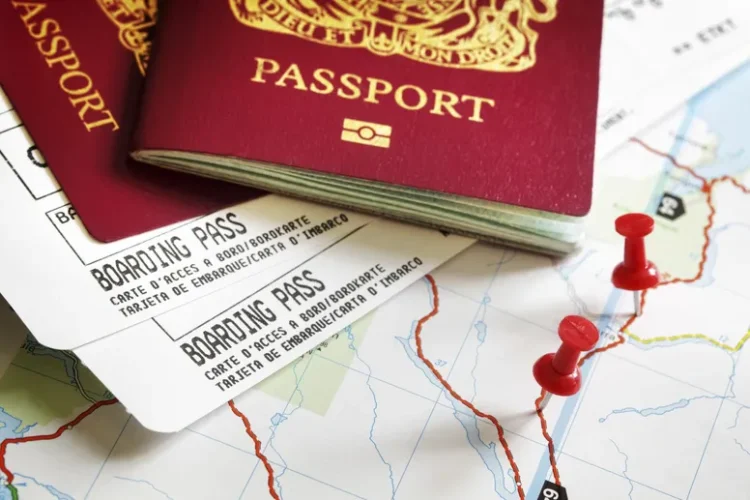By Ben Kerrigan-
Controversial voter identification rules implemented during this year’s local elections in England have been found to contribute to racial and disability discrimination, according to a scathing report co-authored by Sir Robert Buckland, a former minister responsible for introducing these rules.
The report, set to be published by the all-party parliamentary group on democracy and the constitution, calls for significant changes to the existing system, including the acceptance of a wider range of identification documents.
Sir Robert Buckland, who served as the Justice Minister in 2021 when the legislation for these rules was first introduced in parliament, played a role in voting these measures into law.
The cross-party committee, chaired by Scottish National Party MP John Nicolson and comprising Labour MPs and peers, raises serious concerns about the impact of these rules.
In a preview of the report obtained by The Guardian, the committee states, “The current voter-ID system is, as it stands, a ‘poisoned cure’ in that it disenfranchises more electors than it protects.”
The findings reveal that “polling clerks are more likely to fail to compare a photo ID to the person presenting that document if the person is of a different ethnicity.”
The report highlights specific cases of discrimination, such as that of Andrea Barrett, who, due to her immunocompromised status, was denied entry to a polling station for refusing to remove her mask during an identification check.
The committee deems such instances “clearly discriminatory (and potentially unlawful) because they denied Andrea Barrett the right to cast a ballot purely on the basis of circumstances which arose as a direct result of a disability.”
The controversial rules, which were used for a full election for the first time in May, mandate that voters must present photographic identification at the polling station.
The government initially argued that these measures were necessary to combat potential election fraud, despite only three people having been convicted of identity fraud at polling stations in the preceding seven years.
Critics contend that the limitations on accepted forms of identification, such as excluding younger voters’ travel passes, disproportionately affect certain demographic groups. An interim study published by the Electoral Commission earlier this year revealed that at least 14,000 people were denied their vote due to a lack of the required ID.
The all-party parliamentary group’s report goes further, suggesting that some individuals may have faced unfair treatment due to their race. It states, “A disproportionate number of electors who were not permitted to vote appeared to be non-white passing. By contrast, all of those who were observed being permitted to vote without presenting ID were white-passing.”
While there is no evidence that these discrepancies changed the outcome of the local elections, the report raises concerns that, if replicated during a general election, they could sway the results in up to 16 constituencies.
The report argues that the current rules place too much reliance on the discretion of polling clerks and returning agents, which can lead to arbitrary decisions with no avenue for appeal.
In order to address these issues, the authors call for the expansion of accepted identification documents and propose allowing individuals who fail ID checks to sign a legally binding declaration confirming their identity. They also advocate for increased training for returning officers.
Sir Robert Buckland expressed his continued support for the voter ID scheme but acknowledged the need for a review to address identified problems. He stated, “Voting should be secure but it shouldn’t be difficult.”
As England grapples with the fallout from the controversial voter ID rules, the debate over the balance between election security and access to the ballot box continues to be a contentious issue at the intersection of democracy and civil rights. The report’s findings will likely fuel discussions about the future of voter identification requirements in the country and their potential impact on marginalized communities.




